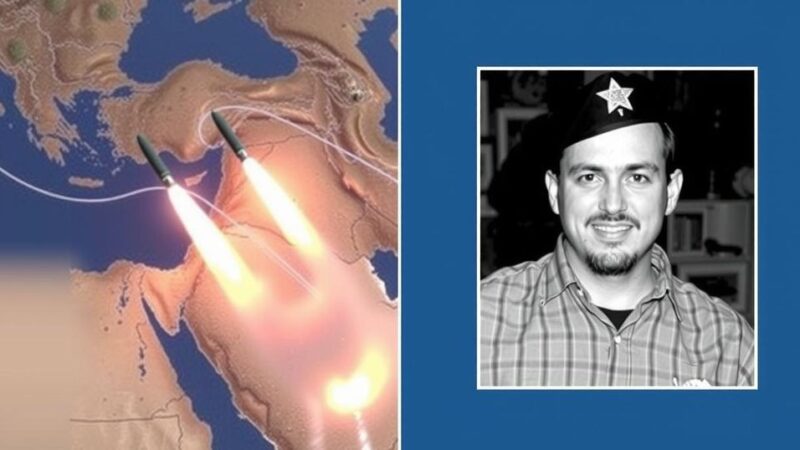Bolivia has officially joined South Africa’s legal case against Israel at the ICJ, accusing Israel of breaching the UN Genocide Convention during its Gaza offensive. This follows Bolivia’s severing of diplomatic ties with Israel, and it adds to a growing list of supporting nations. The ICJ previously mandated measures to prevent genocide, which Israel is accused of ignoring. The ongoing conflict has led to significant civilian casualties in Gaza, raising urgent humanitarian concerns.
In a significant development, Bolivia has officially joined South Africa’s legal case against Israel at the International Court of Justice (ICJ), alleging that Israel’s military actions in Gaza constitute violations of the United Nations Genocide Convention. This announcement follows Bolivia’s prior severing of diplomatic relations with Israel in reaction to what it termed the “disproportionate” attacks on the Gaza Strip. Several other nations, including Colombia, Libya, Spain, and Mexico, have also expressed support for this case, which Israel categorically denies. The ICJ had previously mandated on January 26 that Israel take all necessary measures to prevent acts of genocide during its military operations. Moreover, the court instructed Israel to grant unhindered access to UN investigators examining genocide allegations. Responding to ongoing humanitarian crises, South Africa has repeatedly returned to the ICJ, demanding further emergency measures. In its latest submission, Bolivia asserted that the “Israeli genocidal war continues, and the Court’s orders remain dead letters to Israel.” While the ICJ’s judgments are legally binding, they lack enforcement mechanisms, which raises concerns regarding compliance. Earlier in July, the court had deemed Israel’s occupation of Palestinian territories unlawful and called for its cessation. The ongoing Gaza conflict has led to significant casualties, with reports indicating over 42,010 fatalities in Gaza, predominantly civilians, as confirmed by the local health ministry. These figures have received endorsements from United Nations sources as credible. The escalation of violence came in response to the Hamas attack on October 7 that resulted in the deaths of 1,205 individuals in Israel. Additionally, Israel has intensified military operations against Hezbollah in Lebanon, with over 1,150 casualties reported as of late September.
The involvement of Bolivia in the ICJ case against Israel comes amidst growing international concern over the humanitarian crisis unfolding in Gaza. Since the resurgence of conflict following Hamas’s October 2023 attacks, the situation in the region has deteriorated significantly, prompting various nations to seek legal recourse through international judicial avenues. The ICJ has emerged as a critical platform for addressing allegations of war crimes and genocide, particularly regarding the actions of state actors in conflict situations. Bolivia’s decision to join South Africa underscores a collective effort among several countries to hold Israel accountable under international law, reflecting broader geopolitical dynamics and regional solidarity. The historical context of military operations in Gaza, characterized by high civilian casualties and reports of human rights violations, adds urgency to the matter and raises questions about compliance with international legal frameworks.
In conclusion, Bolivia’s decision to join South Africa’s case against Israel at the ICJ highlights a significant international legal challenge regarding alleged violations of the Genocide Convention during the ongoing Gaza conflict. The growing coalition of nations advocating for accountability illustrates a concerted effort to address serious humanitarian concerns through legal mechanisms. Despite the binding nature of ICJ rulings, the effectiveness of these measures may be hindered by the court’s lack of enforcement capabilities. The situation remains fluid as the international community grapples with the complexities of the conflict and the implications of state behavior under international law.
Original Source: www.arabnews.com






